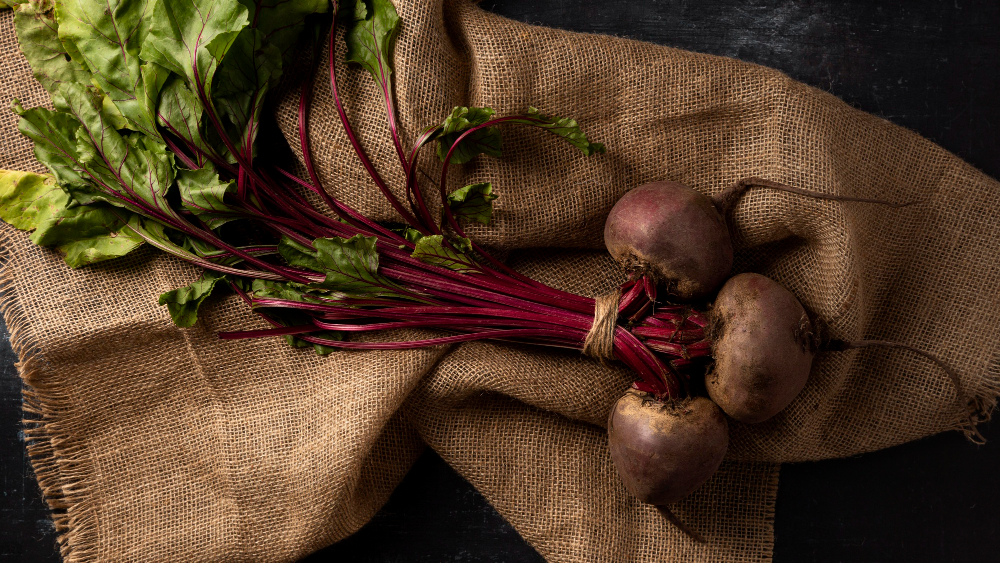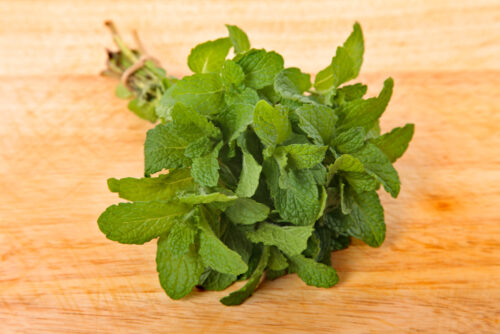Beets are a bold and distinctive vegetable, known for their deep red color, earthy flavor, and wide array of health benefits.
Rich in fiber, folate, iron, and antioxidants, they play a central role in many nutritious meals, juices, and salads.
However, not everyone is fond of their intense taste or texture. Others may be allergic or out of beets when a recipe calls for them.
If you’re looking for a substitute for beets, whether due to taste preferences, dietary needs, or availability, you’ll be happy to know there are many alternatives that can match or even enhance your dishes.
Let’s explore the top beet substitutes and beet-like vegetables, each with its flavor profile and nutritional perks, helping you make the right swap for your culinary needs.
Carrots: Sweet, Versatile, and Familiar
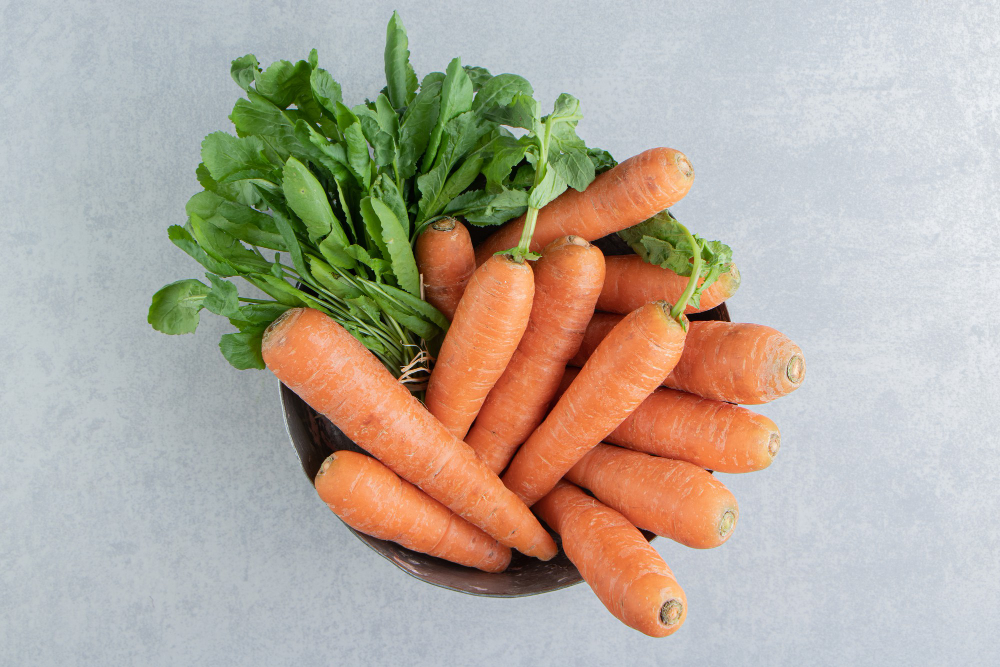 Carrots are one of the most accessible and widely used substitutes for beets. Their natural sweetness and vibrant orange color can brighten any dish, whether a hearty stew or a refreshing salad.
Carrots are one of the most accessible and widely used substitutes for beets. Their natural sweetness and vibrant orange color can brighten any dish, whether a hearty stew or a refreshing salad.
While carrots don’t have the same earthy undertone as beets, they share a similar sweetness, especially when roasted. This makes them an excellent choice for recipes where the beet’s sweetness is the star.
Carrots also shine in terms of texture. They can be shredded raw into slaws, sliced for stir-fries, roasted for warm sides, or pureed into soups and sauces.
Health-conscious cooks will also appreciate that carrots are typically lower in calories than beets, making them a favorite for those following calorie-restricted diets.
If you’re swapping carrots for beets in juices, expect a lighter and slightly less complex flavor, but one that’s more palatable to many.
Butternut Squash: Creamy Sweetness with a Twist
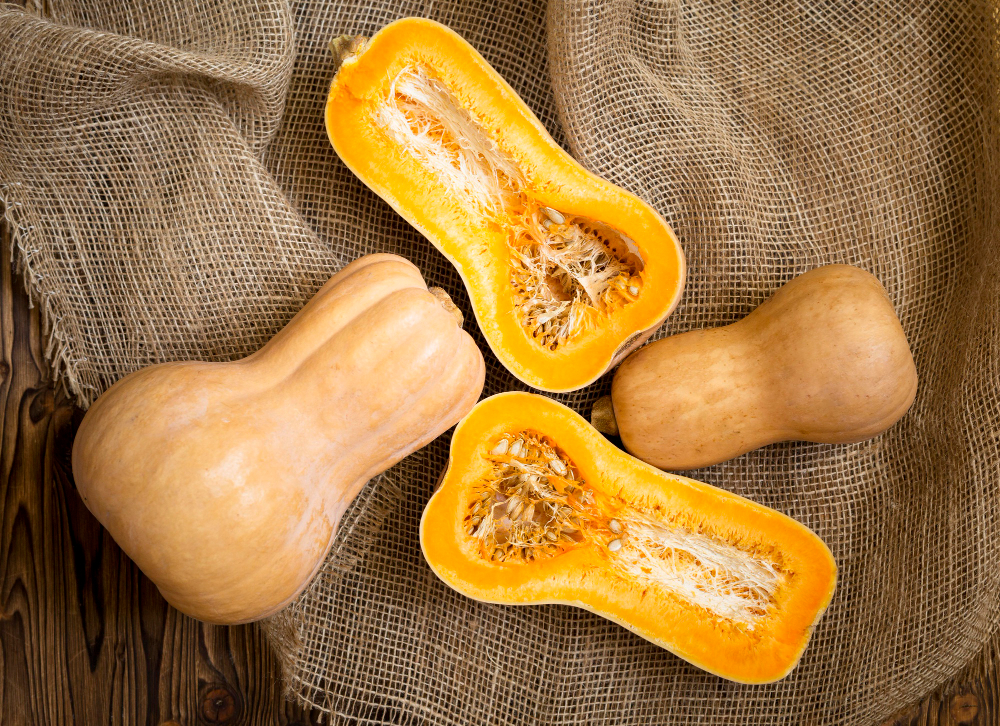
If you’re looking for a slightly richer and more comforting alternative to beets, butternut squash is a beautiful option.
With its velvety texture and naturally sweet taste, it complements savory and sweet recipes alike.
When roasted, butternut squash develops caramelized edges and a deep, honey-like flavor that pairs wonderfully with spices like cinnamon, nutmeg, cumin, or rosemary.
When pureed, butternut squash offers a smooth consistency, making it ideal for soups, sauces, or baked goods.
It lacks the bold, earthy punch of beets, but brings a balanced, crowd-pleasing flavor that can soften and round out a dish. It’s packed with vitamins A and C, making it a nutritional powerhouse.
Sweet Potatoes: Nutrient-Dense and Comforting
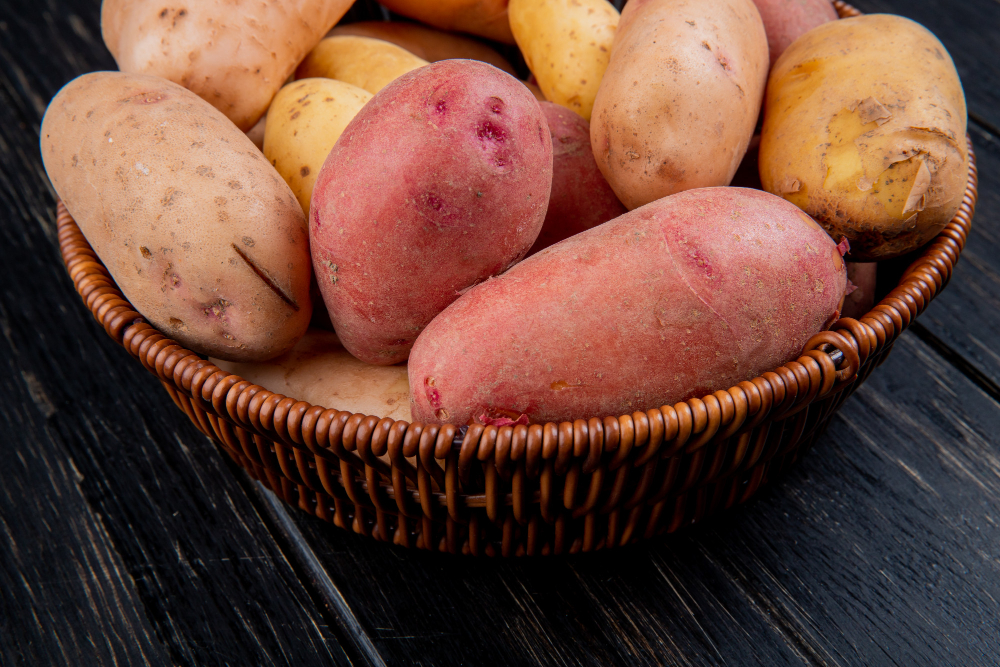 Sweet potatoes are another great swap if you’re craving a robust flavor and vibrant color substitute.
Sweet potatoes are another great swap if you’re craving a robust flavor and vibrant color substitute.
Their sweetness is more subdued and starchy than beets, but still adds a warmth that enhances many dishes.
Roasted, mashed, or cubed into stews, sweet potatoes hold their texture well and create hearty meals with minimal effort.
Their buttery texture when mashed makes them perfect for side dishes, while roasted sweet potatoes can mimic the texture of cooked beets in many entrees.
From a nutritional standpoint, sweet potatoes are rich in beta-carotene and fiber. They’re an excellent way for people to diversify their meals without sacrificing nutrients.
Parsnips: Nutty, Sweet, and Mildly Earthy
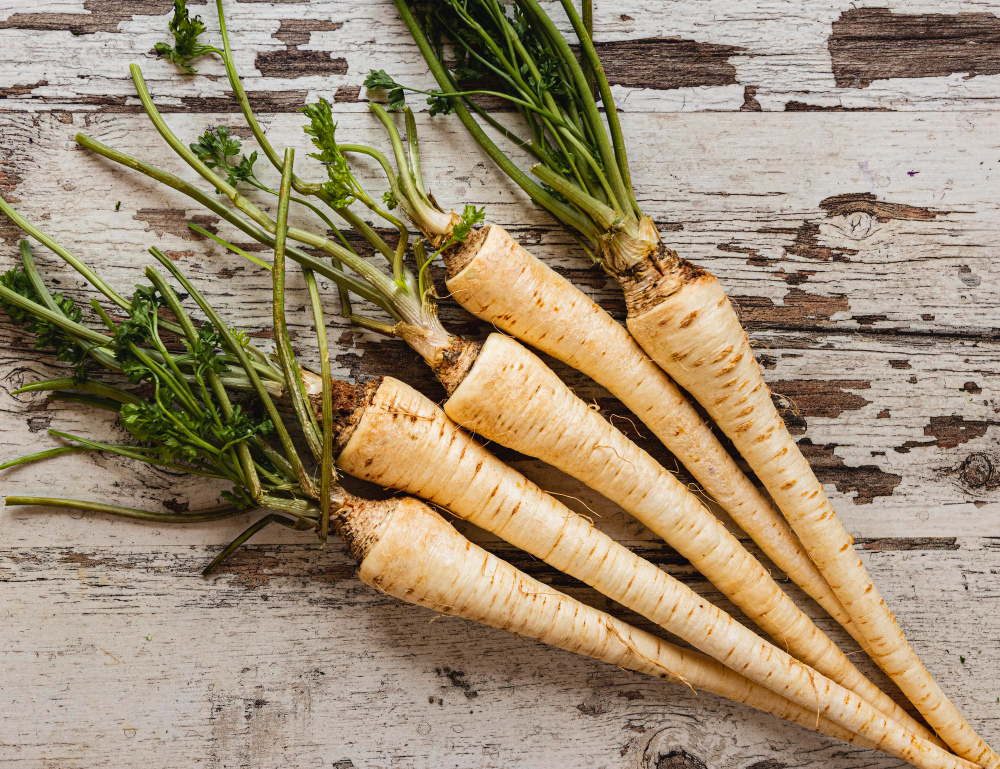 Parsnips may not be the most common vegetable in your kitchen, but they’re an outstanding beet substitute for sweetness with a bit of depth.
Parsnips may not be the most common vegetable in your kitchen, but they’re an outstanding beet substitute for sweetness with a bit of depth.
Their nutty, slightly spicy flavor is more mellow than beets but adds a unique profile to savory and sweet recipes.
Roasting parsnips transforms them into golden, caramelized bites perfect for side dishes. Pureeing them into soups or mashing them with potatoes creates a silky, flavorful base.
Though lighter in color, parsnips offer a similar satisfying texture to beets and are a great way to add interest to your meals while keeping them grounded in classic comfort.
Turnips: Earthy and Robust with a Bite
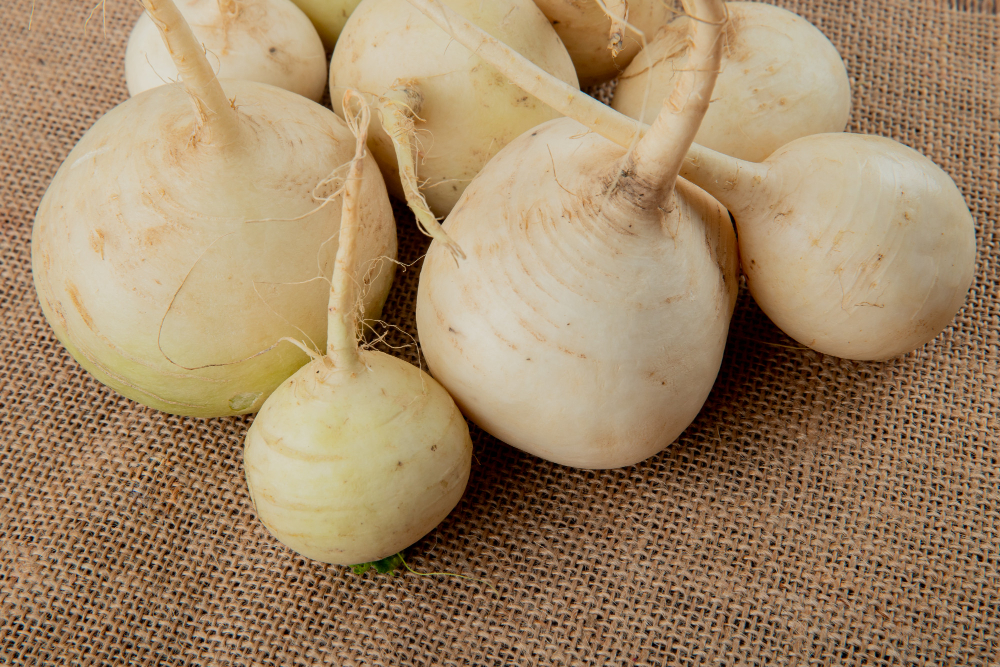
Due to their similar size and root shape, turnips are often mistaken for beets, but their flavor differs slightly..
They carry a subtle bitterness and a sweetness, offering complexity that can mimic beets in the right dish.
When roasted or sautéed, turnips mellow out and develop a soft, pleasant flavor that is perfect for soups, stews, or purees.
Although they don’t offer the same red hue as beets, they provide a textural substitute that’s easy to integrate into various meals.
For those looking to branch out from the familiar, turnips are an excellent way to introduce a new taste without straying too far from what beets bring.
Rutabaga: Sweet, Earthy, and Underrated

Rutabaga is a lesser-known but highly effective alternative to beets, especially for those who enjoy a subtle, earthy taste. A cross between cabbage and turnip, rutabaga has a mild flavor that comes alive when cooked.
Roasting, mashing, or even spiralizing it for “noodles” offers creative ways to add it to your meals. Its gentle texture and natural sweetness make it great for soups and stews.
You can elevate its flavor with herbs like thyme or sage, or simply use it as a foundation for hearty winter dishes.
In many ways, rutabaga is like a gentler version of beets, making it perfect for recipes with a toned-down but still flavorful base.
Celery Root (Celeriac): Earthy and Aromatic
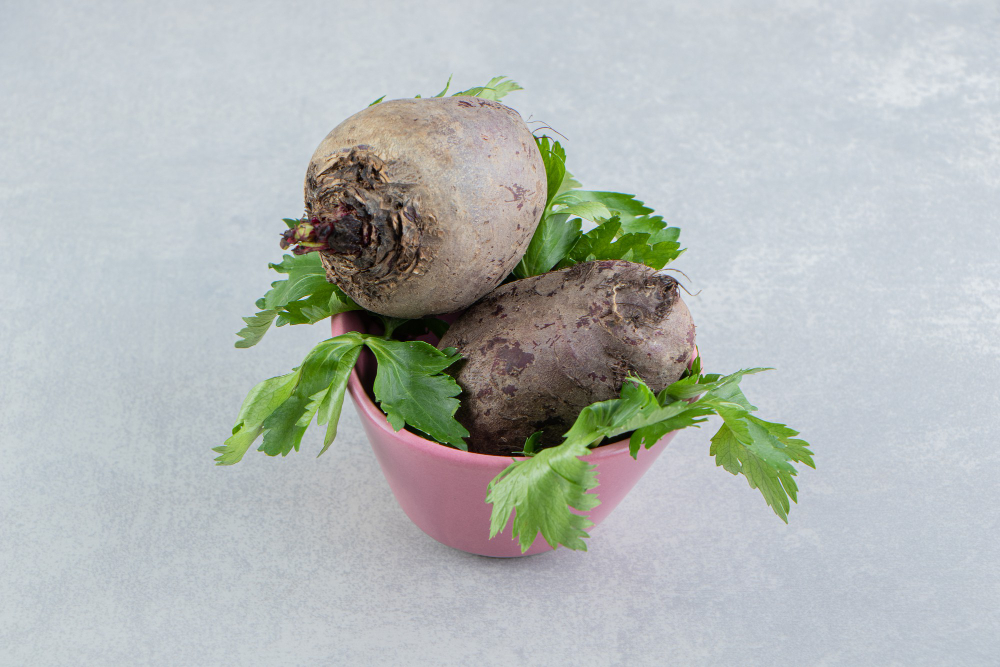
Celery root, also known as celeriac, may not be the prettiest vegetable in the produce section, but it makes a fantastic beet substitute.
Celery root’s strong, earthy flavor and firm texture make it a good addition to many savory dishes that typically call for beets. You can roast, mash, or shred it, and it holds its structure wonderfully during cooking.
It also makes a delicious base for soups or creamy purees, where its distinctive taste adds an unexpected but welcome twist.
Its versatility allows you to substitute it for beets without overpowering the dish, making it a dependable staple in your vegetable rotation.
Kohlrabi: Crisp, Sweet, and Subtly Spicy
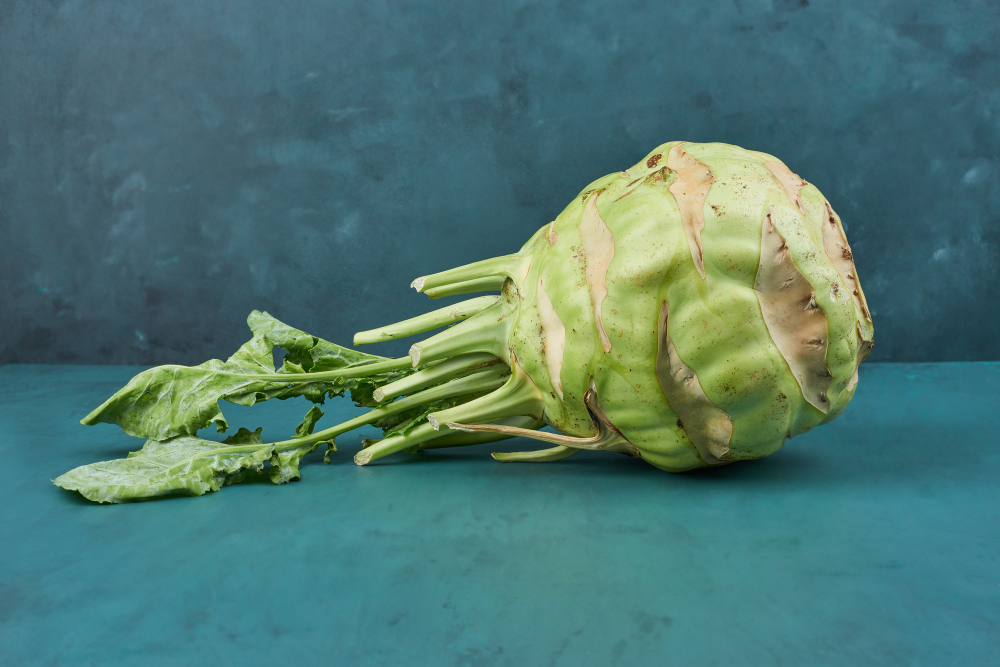
Kohlrabi may not be as well-known as some other root vegetables, but it’s gaining popularity as a beet alternative thanks to its sweet, peppery flavor and crunchy texture.
While its flavor is milder than beets’, kohlrabi still adds a welcome complexity to recipes. It can be roasted, stir-fried, or raw in salads and slaws. Its firm texture makes it a marvelous choice for dishes that need a bit of bite.
It’s especially well-suited for people who aren’t fond of beets’ earthy taste but still want something fresh and nutritious.
Jicama: Refreshing, Light, and Crunchy
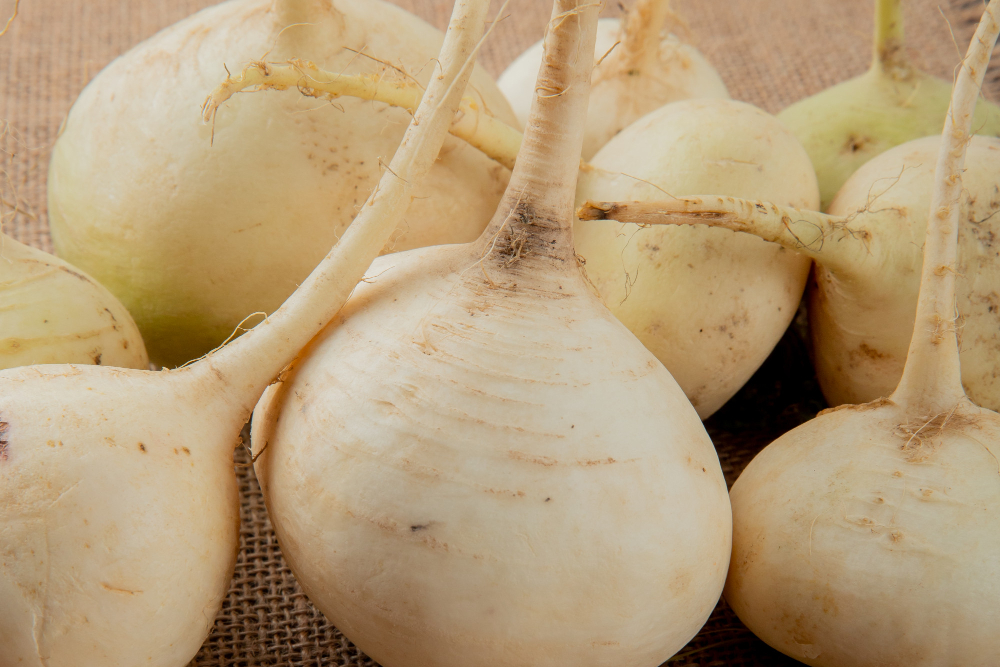
If you’re looking for a raw substitute for beets in salads or slaws, jicama offers a delightful crunch and subtle sweetness that can perfectly fill that role.
It’s a significant low-calorie alternative, high in fiber and water content, making it ideal for hydrating summer dishes.
Unlike beets, jicama doesn’t require cooking, which saves time and preserves its natural crisp texture.
Jicama also absorbs dressings and spices well, allowing you to customize the flavor profile to suit your needs. Although it might not mimic beets in flavor or color, it excels in texture and health appeal.
Daikon Radish: Mild, Crisp, and Versatile

Daikon radish offers a lighter, slightly sweet flavor with just a hint of spice. It can be eaten raw for a refreshing crunch or cooked to bring out a smoother, milder taste. It’s a practical beet substitute for Asian-inspired recipes, soups, or pickled dishes.
While daikon lacks the dark pigment of beets, it still stands out as a delicious, health-boosting vegetable that can add contrast and complexity to your meals. If you’re seeking an alternative that brings subtle heat and versatility, daikon is worth exploring.
Final Thoughts: Choosing the Right Beet Substitute for Your Needs
Each of these vegetables can substitute for beets, but the best one for you depends on your specific culinary goals.
Are you seeking sweetness? Go with carrots or butternut squash. Want a robust texture and earthiness?
Try rutabaga or parsnips. Looking for something raw, crunchy, and mild? Jicama or kohlrabi might be your answer. The wonderful thing about cooking is the room it gives for experimentation.
These beet alternatives allow you to reimagine familiar recipes and discover new favorite ingredients.
Whether out of beets, avoiding them, or just ready for something different, these vegetables provide a massive range of flavors and textures to explore.
So, next time your recipe calls for beets, don’t fret. Use it as a chance to try something new, nutritious, and just as delicious.
Explore healthier substitutes for a healthy living, quick fixes, and experimenting in the kitchen with The FoodNom.

